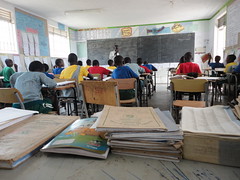What Is a Classic?
Class #2 covers the Five Pillars of Statesmanship/Leadership Education. They are Classics, Mentors, Simulations, Field Experiences, and God. For a thorough explanation of all, I recommend reading A Thomas Jefferson Education by Oliver DeMille. I want to share with you a comment that I really liked from a student of mine named Christopher.
I had finished my lesson at Cranes, and Christopher raised his hand. I love Christopher. His comments start out with a challenging tone, and I’m afraid he’s going to pick me apart, but then he says or asks something quite profound.
I had explained that in the US when we hear the word classic, often we think of old things. In fact, a classic is any work of art, music, literature, technology, or even other people who inspire us to learn. Classics engage us by pushing us to ask big questions about life: What is good? What is evil? What is man’s purpose? What is right? What is wrong? What is the proper theory and application of law? What is the balance between justice and mercy? These are a few of the examples, but as we ask these questions and follow the process I explained in my last post of participating in events, albeit as a spectator, and witnessing the consequences, we begin to recognize answers to these questions. They often present as patterns, archetypes, historical patterns, etc. These answers shape our lives. The classics we experience shape our government, our lives, the way we interact with others, and what our families look like.
Therefore, if we embrace bad classics, like Mein Kampf, our government will reflect the lessons taught by Hitler, so will our relationships with others. This is why good classics are so important in Leadership Education. We need good, strong, virtuous leaders who have answers, because they have experienced the answers. This is how the Founding Fathers were able to shape such a great government and its documents. They knew the patterns throughout history that followed the implementation of the various types of governments. They understood human nature, both on the side of leaders who begin to lust for power and the typical responses of the “regular” people.
I’m not sure if Christopher had come in late, or if my mzungu accent was too much for him, but up went his hand. He began by saying that he thought I was wrong in saying that only books were classics. He asked me, “because what about the times that I have walked in the jungle and seen all the different types of amazing animals and the way they work with the plants for food and shelter? I have seen dozens of types of plants and the beautiful flowers and amazing fruits. I have watched the water in rivers and streams sparkle over rocks and fish. I have seen the blanket of stars in a dark night and know that they have shape and meaning. What about the different people who I have come across in my life that may have given a lecture that inspired me to learn more and do more. All of these things make me ask questions about how things work, what lessons they might teach me, and things like that. Are they not all classics?”
Another student added, “Yes! Because I was studying the origins of music, and in many instances it was the observation of animals and the sounds that they make that inspired the creation of new instruments!”
I love it when the students teach the principle that I have tried to share, only they do it better than I ever could. I love how classics have inspired us as individuals and as a human race. I love how a little boy standing in Arizona, marveling at the amazing Milky Way, can have the same types of thoughts and questions race through his head as a little boy standing under the starry night in Uganda. I love to see the hunger that the Ugandan teachers have for classics. The do not have very many good books here. I love knowing that my children are growing up with constant exposure to classics. These things give me hope that the future has real answers for the problems we will face – both in the US and in Uganda.












Wow, that is one cool story! Humbling and exciting, I imagine!
I’m glad you’re doing well. You are such a good teacher and a hard worker…I can’t imagine anything less than SUCCESS for all involved in this experience you’re having!
Love you!!!!